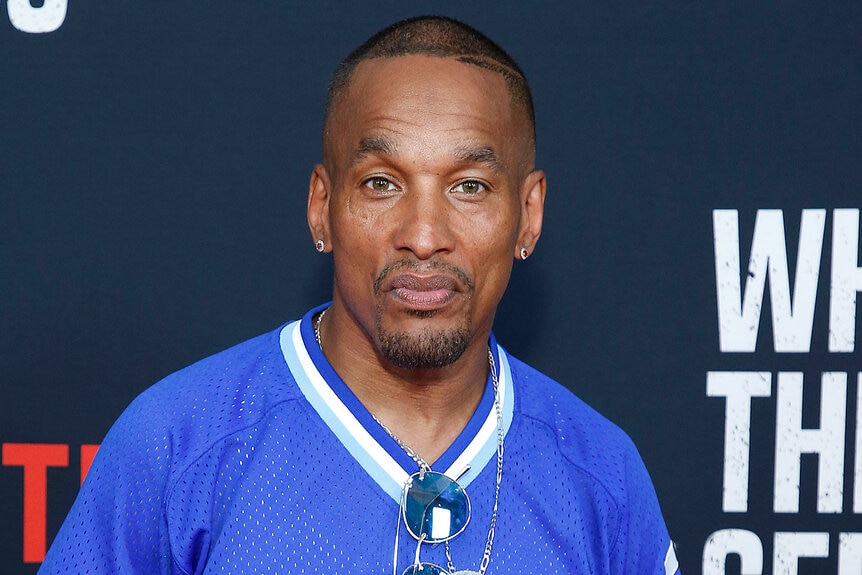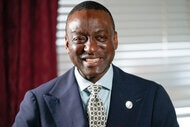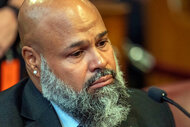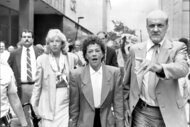Create a free profile to get unlimited access to exclusive videos, breaking news, sweepstakes, and more!
Why Was Korey Wise, Who Only Went To The Station To Support A Friend, Given The Most Time Behind Bars?
One member of the Central Park 5, Kharey Wise, who later changed his name to Korey, may have been particularly vulnerable.
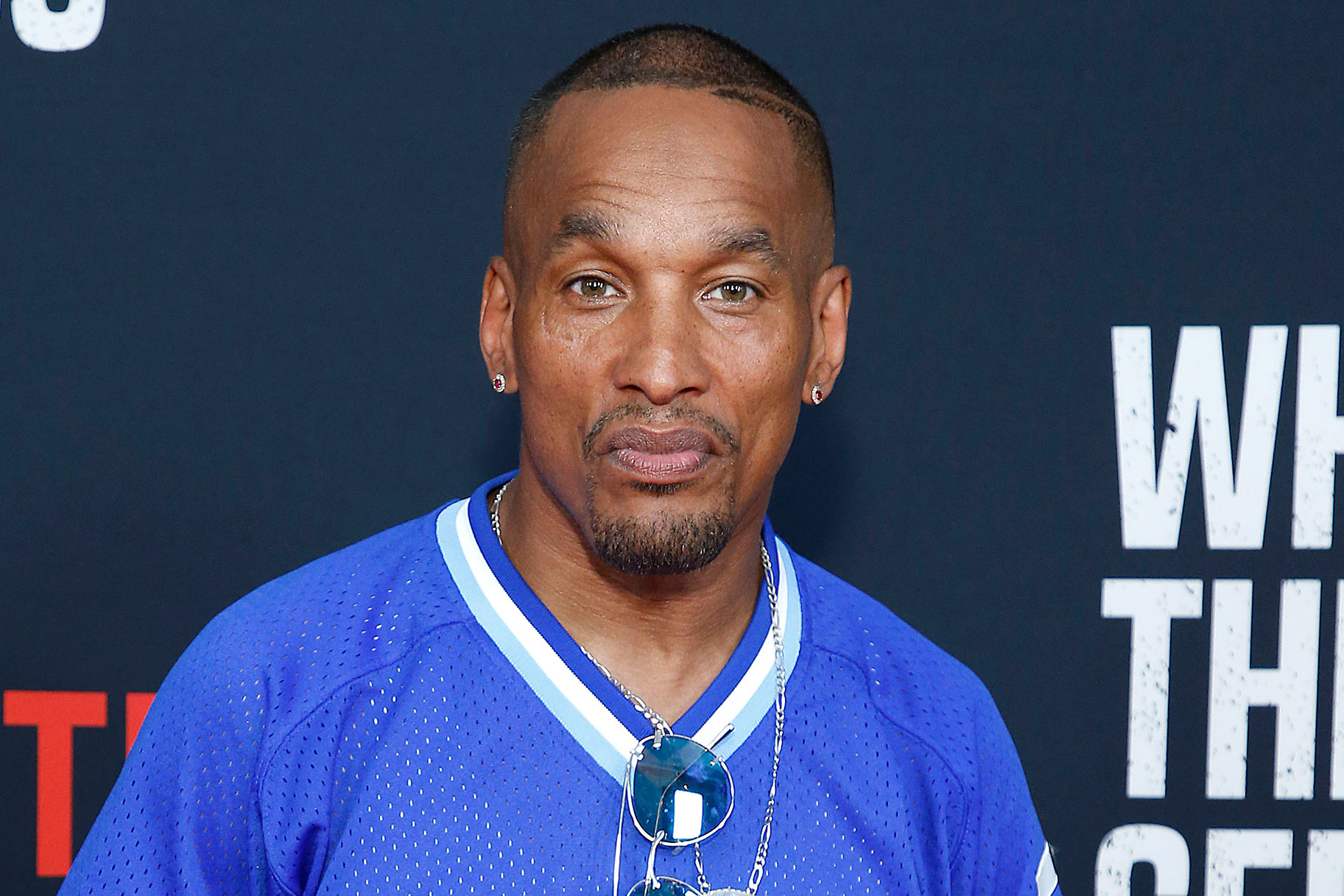
The "Central Park 5" case was one of the most publicized and controversial cases of the 1980s: five teens were falsely accused and convicted of raping and beating a woman in Central Park, and it would take years before they were exonerated. And while all of their stories are tragic, one of the five in particular had an especially difficult journey and spent more time behind bars than the other four.
As Ava DuVernay's new four-part Netflix series "When They See Us" shows, Raymond Santana, 14, Kevin Richardson, 14, Antron McCray, 15, Yusef Salaam, 15, and Kharey Wise, 16, were convicted of the rape and assault of 28-year-old Trisha Meili, an investment banker who was attacked in Central Park in 1989. All the boys spent between six and 13 years in prison for the attack before being exonerated in 2002 after the actual rapist, Matias Reyes, confessed.
Wise was the only one who was still imprisoned in 2002, and he served the most time behind bars in adult prisons, including at the infamous Rikers Island. But the thing is, Wise wasn't even a suspect to begin with. So why did he end up serving the most time?
As the series depicts, he only went down to the precinct to support his friend Salaam while police questioned him in connection with the rape. However police then decided to zero in on him, too, and because he was 16, he could be interrogated without a guardian — and be charged as an adult, the only member of the five old enough to be.
But he may have also been particularly vulnerable for other reasons than age. In her 2011 book, "The Central Park Five: The Untold Story Behind One Of New York City's Most Infamous Crimes," Sarah Burns writes that Wise had hearing problems from an early age and a learning disability that limited his achievement in school.
In her book she described Wise as having a “childlike nature.” Burns, whose dad worked at a lawyer’s office who represented the five in a lawsuit, referred to him as "the least developed emotionally and intellectually of the boys."
A videotaped confession shows a very confused Wise changing his story until he finally “confesses” to raping the victim. He was interrogated for hours until he provided multiple statements and two videotaped confessions, all of which wildly conflict with each other and the nature of the victim’s injuries. In one of his videotaped confessions, he even claimed Meili was stabbed with a knife. In actuality, she was struck by a rock after initially being hit with a tree branch.
In that taped confession, he also said he changed his statement after a "detective came in my face, arguing with me, cursing at me, hitting on me."
On the stand he maintained he went to the park but said he left soon after, without participating in any violence.
"He explained that he'd then gone over to his girlfriend Lisa's place for most of the rest of the evening," Burns wrote.
The only violence he participated in, he claimed, came at the hands of police.
"He described being taken to the police precinct, and he accused Detective Nugent of slapping him and swearing at him, and telling him that he could go home if he lied and said he'd been there," she wrote.
While on the stand, he said he couldn't read or write very well and that he also had difficulty hearing. During cross examination, lead prosecutor Elizabeth Lederer asked him to read something and he couldn't. Then, according to Burns’ book, she put records in front of him to prove that he hadn't been going to school.
That's when he explained that he was the victim of bullying.
"I was 12 years old back then. What does this have to do with Central Park,” he testified according to the book. “The reason why I wasn't in school was because I was threatened not to go back to school. People putting guns to my head, that's why."
While imprisoned, Wise met the real rapist, Matias Reyes, behind bars who eventually admitted to the crime. DNA backed up that confession.
Even though he was exonerated, Wise had to spend years in adult prisons. “When They See Us” depicts some of the pain that he went through behind bars.
"One of the things that really struck me was when Korey said to me, ‘There is no Central Park Five. It was four plus one. And no one has told that story,’” director Ava DuVernay told Town & Country. "I think it’s important for people to understand the depths of what it means to be incarcerated in adult prisons in this country.”
After he was released, Wise changed his first name from Kharey to Korey. He both established and funded the Korey Wise Innocence Project at Colorado Law School, which offers pro-bono legal counsel to wrongfully convicted people, like himself.
He is the only member of the five who chose to stay in New York City.
"You can forgive, but you won't forget," Wise in the 2012 documentary, "The Central Park Five." "You won't forget what you lost. No money could bring that time back. No money could bring the life that was missing or the time that was taken away."
